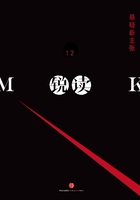GATHERING DATA AND ESTABLISHING PRENEGOTIATION OBJECTIVES
The key next steps are gathering data and establishing prenegotiation objectives.
GATHERING DATA
A wealth of information that can help you and your team prepare for the negotiation is available. Remember the main reason you are gathering data: to verify that the contractor's proposed pricing, terms, and conditions are fair and reasonable and, if they are not, to develop and defend your position on what you consider fair and reasonable. Keeping this in mind will help you limit your search and prevent information overload.
Bear in mind that the data-gathering you're doing at this stage is solely to help you come up with your positions, given the contractor's proposal and your customer's needs. (Later you will gather additional data to give you important clues and insights into the folks who will be sitting across the table from you.) The most important sources of data to help you establish your negotiation positions include the following:
? Requirements package e.g., statement of objectives, statement of work, performance work statement
? Solicitation document (request for quotes, request for proposals, etc.)
? Contractor's proposal
? Technical evaluation report
? Fact-finding/exchanges
? Price analysis and cost analysis
? Acquisition histories.
Assign responsibility for gathering and analyzing the data to individual team members during the kickoff meeting. Tailor the amount and kinds of data you'll gather to the size and complexity of your particular situation to avoid "analysis paralysis." If you try to collect all available information before you negotiate, you'll never negotiate—you'll spend all your time collecting data. Collect enough to make smart decisions and press on!
ESTABLISHING PRENEGOTIATION OBJECTIVES
Once you have gathered the relevant data, the next step is to establish your prenegotiation objectives. To do this, you first need to use what you have learned in data-gathering to establish your priorities for the negotiation. Knowing your priorities is essential to establishing your negotiation plan; they will serve as a guide and focal point when your plan encounters the confusion and shifting positions that will inevitably arise during a negotiation.
Manager Alert
You must know your priorities—and their order of importance—to develop an effective negotiation plan.
In reality, some of your priorities may already be dictated to you. Other priorities may be constrained by time, money, contract type, law, and policies. Your own experience and your team members' experience (or lack of experience) may also constrain what you can focus on as priorities. But there are usually many issues over which you and your team have a fair amount of control. What's important to you—and where the issues rank in importance to each other—will affect how you plan your negotiation.
Your customers should have the lead role in identifying priorities for the negotiation. Only they can tell you how high factors such as quality, timeliness (the schedule), cost, and risk are on the list—what is most important, second most important, and so forth. Lead your customers into focusing on the high-priority items; don't let them get bogged down in the muck of trivial or less important issues. It's better to be well prepared for a few big issues than to be somewhat prepared for all possible issues. You should always be prepared to manage conflict, as the team will not always agree on the priorities.
Your next step is to lead the team in arranging these issues in a list from most important to least important—using the customer priorities you helped the team establish. This will give you a prioritized list of issues you want to discuss in the negotiation.
After the list is created and agreed to, draw a line across that list, somewhere near the middle. Everyone must agree on where the line goes. Label all the issues above that line "must" points. All those below the line become "give" points. Must points are those issues that must go your way—objectives that must be met or agreement may not be reached. Give points are issues that you are willing to give on a little to reach a final agreement. Must points are your gotta haves—they should be the concrete needs of the government. Give points are your nice-to-haves, which usually reflect the wants of your customer.
After all the issues are labeled, ask your team for a few additional "give" points and add them to the bottom of the list. Price should always be below the line as a give point, because it almost always changes as a result of the give-and-take of negotiation. Both sides usually build in some flexibility on price, and both sides will expect some movement. In addition, tradeoffs on other issues are usually made against price.
In establishing these must and give points, you are building flexibility into your negotiation. Understand that the other side will likely be doing the same thing.
Once you have established and ranked your negotiation priorities and decided on your must and give points, you're ready to finalize your prenegotiation objectives by establishing your acceptable negotiation range for each issue. For each significant issue you'll be negotiating—each issue you have labeled as a must or a give point—you now establish three positions: a minimum position (MIN), a target position (TGT), and a maximum position (MAX). Because you're the buyer, your MIN position should be your best-case scenario—if everything works out exactly like you want it to. Your TGT position is your estimation of the most likely result given the give-and-take of negotiation. It's not all you hoped for, but it's about what you expected, and you can live with it. Your MAX position is the worst-case scenario. That's the point at which you no longer believe the price to be fair and reasonable—your walk-away point. This process builds in more flexibility for your negotiation.
Manager Alert
Establish three positions: a minimum position (MIN), a target position (TGT), and a maximum position (MAX) for each significant issue you'll be negotiating.
The other side will be doing the same thing; somewhere between your MIN and their MAX, your goals should intersect. It's precisely here—where your range of flexibility intersects with theirs—that the possibility of an agreement exists. This is called the zone of potential agreement.















